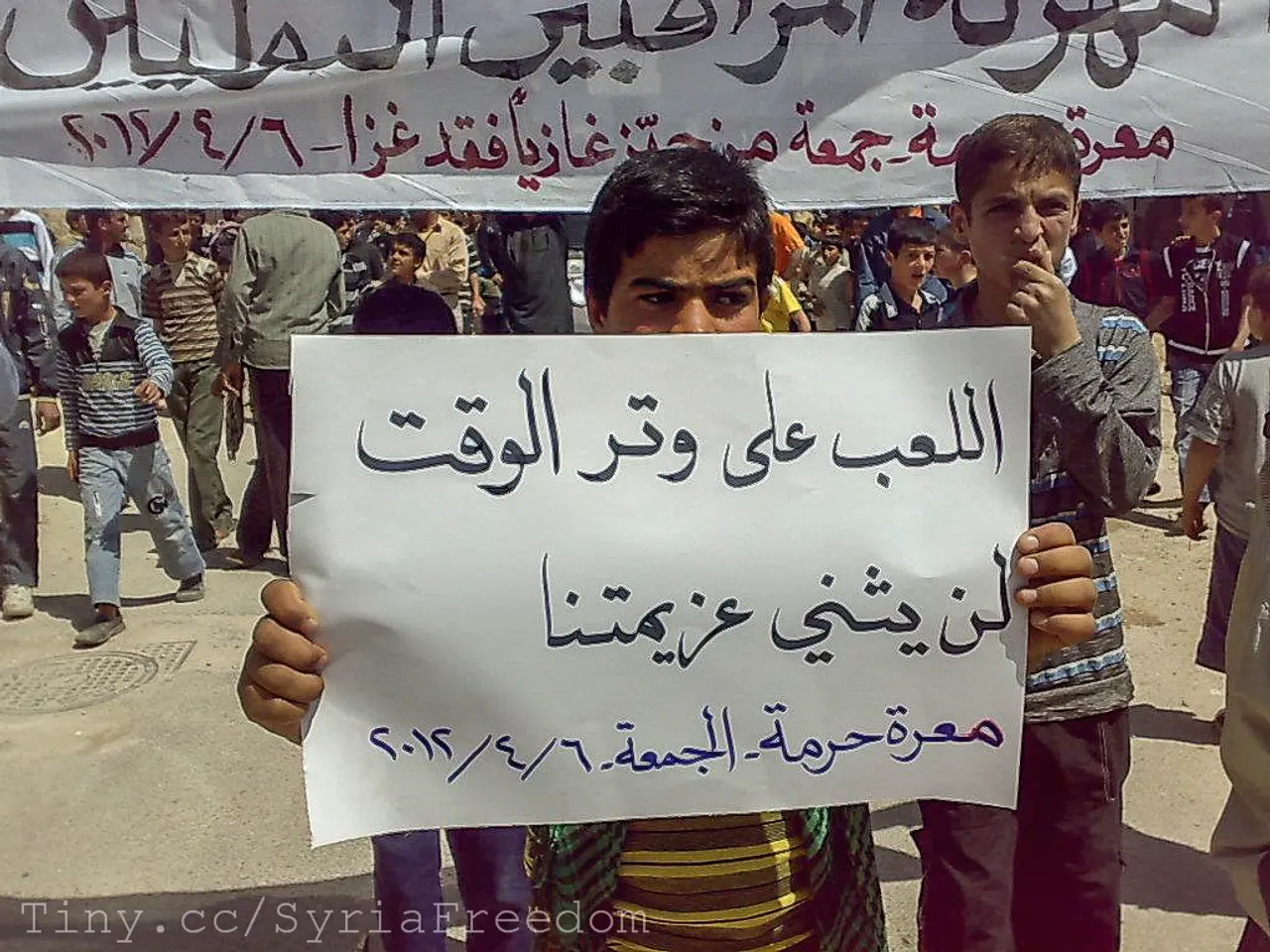Online discontinuation of truce among Cambodians and Thais
In the midst of the ongoing 2025 Thailand-Cambodia border conflict, both nations have accused each other of waging an information war. However, there is no clear documented role of cyber troops or state-driven false information campaigns in this conflict, according to recent reports, analysis, and military timelines.
The conflict, which began on May 28, 2025, has been marked by kinetic military engagements such as skirmishes, artillery fire, and airstrikes. Territorial disputes near sites like Prasat Ta Muen Thom temple and adjacent border areas have been at the heart of the conflict, with each side accusing the other of initiating hostilities.
Thai sources report instances of Cambodian unmanned aerial vehicles (drones) and armed soldiers approaching Thai positions, leading to exchanges of fire and airstrikes by Thai F-16 jets targeting Cambodian military positions. Cambodia, on the other hand, claims these actions were defensive responses to Thai incursions.
Despite the prevalence of information warfare in modern conflicts, there is a lack of explicit confirmation regarding government involvement or deployment of cyber troops for disinformation in this particular conflict. The reporting focuses on military and diplomatic developments without elaboration on cyber or propaganda campaigns.
The conflict has resulted in tragic consequences, with at least 40 deaths and the displacement of over 260,000 people in just five days. Amidst this, false information has been circulating online, with videos and images being shared with misleading captions. For instance, a video of a deadly Cambodian strike on a Thai gas station was falsely claimed to be an attack on Cambodian soil.
Jessada Salathong, a professor of mass communication at Chulalongkorn University, stated that the entire spectrum of information disorder had unfolded during the clashes between the two countries. The Nation, Bangkok Post, and other Thai media outlets experienced DDoS attacks, and the Thai Anti-Fake News Center has multiplied prevention messages and online mini-guides to debunk misinformation.
The Cambodian government spokesman, Pen Bona, spoke of a "psychological war," while the Thai Anti-Fake News Center issued a warning about the proliferation of fake news, including a widely circulated false report claiming that Thai troops attacked and decapitated Cambodian soldiers.
Official websites have been targeted by spam waves, taking pages offline and altering their content. The conflict between the former prime ministers, Thai Thaksin Shinawatra and his Cambodian counterpart Hun Sen, has been fuelled by online hatred and nationalism.
A Thai parliamentarian from the Move Forward party, Chayaphon Satondee, claimed that the Thai royal army had engaged cyber experts to target more progressive and moderate Thai personalities. Other posts, including one by Cambodian State Secretary Vengsrun Kuoch's official page, claimed that Thai forces used chemical weapons, which is not the case.
The Ministry of Economy and Society (MDES) in Thailand issued a warning about the proliferation of fake news, while the Cambodian Ministry of Foreign Affairs held a press conference to reject accusations by Thai media that the ceasefire was solely due to Thailand's efforts.
Thai authorities recorded over 500 million online attacks in recent days, and the ceasefire, signed on July 28, is holding, but the online conflict between the two neighbors is ongoing. Social media platforms, such as TikTok, Facebook, and Telegram, have been heavily used during the conflict, with a flood of flags, hashtags, and messages.
As the conflict continues, both nations must strive to combat the spread of misinformation and work towards maintaining peace and stability in the region.
- Despite the ongoing border conflict between Thailand and Cambodia, there seems to be little evidence of a significant cyber protagonist role playing in the information war, as reported by recent analyses, militaristic timelines, and news outlets.
- In the midst of the ongoing border clash between Thailand and Cambodia, the general-news surrounding the conflict primarily focus on military and diplomatic developments, leaving a void in the reporting of any cyber or propaganda campaigns, according to experts.






